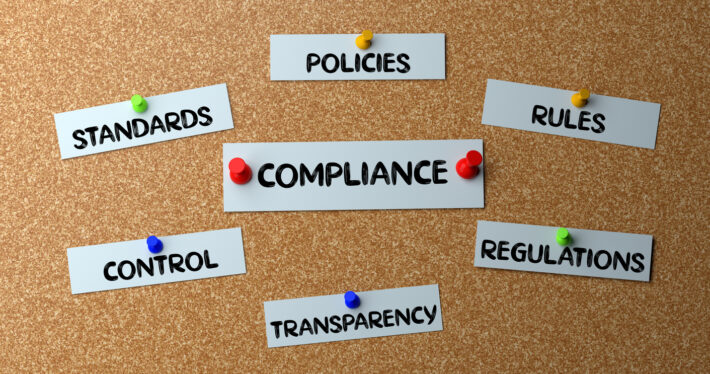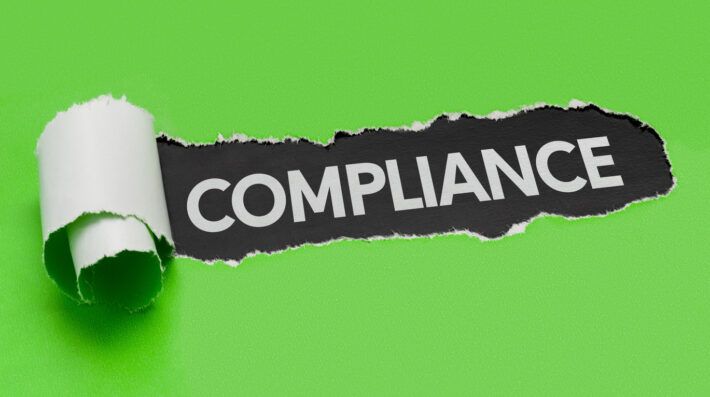OFCCP Compliance Guide

Understanding OFCCP and Its Importance
The Office of Federal Contract Compliance Programs (OFCCP) operates under the U.S. Department of Labor, ensuring that those doing business with the federal government uphold principles of fairness and equality in employment practices. Whether you are a growing business hoping to secure a lucrative government contract or an established entity with deep federal ties, adherence to OFCCP regulations is non-negotiable.
Adhering to OFCCP standards isn’t just a legal checkbox but an essential business practice. Failure to meet these standards can lead to significant fines and sanctions, including debarment from future government contracts, which could mean a substantial loss of revenue for many businesses.
Maintaining OFCCP compliance involves developing affirmative action plans and ensuring workplace inclusivity. This ostensibly regulatory burden doubles as an opportunity to tap into a diverse talent pool, potentially enhancing innovation and decision-making — crucial elements for competitive advantage in today’s market.
Being compliant also has significant public relations and networking benefits. Imagine your business recognized for its product or service contribution and its commitment to fair employment practices; this could be a defining differentiator in your industry.
On the flip side, non-compliance can lead to potential audits, investigations, and back-pay settlements, which can escalate based on the duration of the non-compliance. Resources are diverted from growth pursuits to damage control. While the specifics of compliance—like compiling accurate employment data, understanding legal liabilities, and developing inclusive recruitment protocols—may seem tedious, they prevent possible negative consequences.
In essence, maintaining strict adherence to the OFCCP reinforces beneficial workplace practices that promote operational success and public trust. Compliance should be treated as foundational to running your federal-contracted enterprise efficiently and ethically.
Key Requirements of OFCCP Compliance
Prospective and existing contractors must heed the major mandates laid out by Executive Order (EO) 11246, Section 503 of the Rehabilitation Act, and the Vietnam Era Veterans’ Readjustment Assistance Act (VEVRAA).
Executive Order 11246 requires that federal contractors and subcontractors must not discriminate against job applicants or employees based on race, color, religion, sex, sexual orientation, gender identity, or national origin. Businesses are compelled to foster workplaces where everyone has an equal opportunity. They must also develop and maintain affirmative action plans if they meet specific business metrics like having 50 or more employees and contracts exceeding $50,000.
Section 503 protects qualified individuals with disabilities. For federal contractors and subcontractors with at least $15,000 in contracts, creating a detailed action plan to hire and incorporate people with disabilities into their workforce is a statutory requirement. This section is reflected in documentable recruitment efforts, accessible workplaces, and due consideration in retention and promotion.
The VEVRAA focuses on taking special care towards ‘protected veterans.’ Compliant actions under this act, applicable for contracts of $150,000 or more, involve outreach initiatives and adjustments within recruitment and hiring. Like the EO 11246 and Section 503, it also demands the creation and maintenance of affirmative action plans.
These laws push organizations towards a proactive stance on diversity, inclusion, and equality. Establishing cross-cultural, multi-abled, and diverse thinking teams fulfills regulatory requirements and fosters innovation and opportunity.
Regular audits are part of this process, which is constructed for checks and balances and affirmative support through remapping compliance strategies based on operational realities. While these requirements may seem stringent, they help keep your business robust, on a growth trajectory, and ethically aligned with the values of fairness, inclusivity, and equal opportunity.
Steps to Achieve and Maintain Compliance
To reach and retain OFCCP compliance, every step you take should be measured and deliberate, ensuring your business not only adheres to regulatory demands but thrives in doing so.
- Audit preparation is obligatory. Establish a routine examination of your workforce data and practices to verify that your documentation is consistent with OFCCP requirements. This helps you discover potential red flags and resolve them proactively.
- Maintain documentation. This supports your AAPs and showcases your compliance in clear terms. This includes careful records of recruitments, promotions, terminations, and compensation levels, all segmented by demographic factors such as race, sex, disability status, and veteran status.
- Devise strategic Affirmative Action Programs (AAPs). Understand that this isn’t just a regulatory requirement—it’s a strategic component of your human resources function. Your AAP should reflect your commitment to fair hiring, promotion, and compensation practices. Analyze your current workforce and employment practices thoroughly. Identify underrepresented areas and deploy specific recruitment efforts to attract diversity, making sure that all job descriptions align with equal opportunity norms.
- Training is imperative. Empower your HR team and everyone involved in hiring and managerial decisions with the necessary understanding of OFCCP compliance and your AAP specifics. Regular training ensures everyone understands the importance of this compliance while smoothly integrating best practices into your organization’s daily procedures.
- Implement software tools to track and report demographic data crucial for compliance and AAPs. Such tools efficiently handle the aggregation of necessary data and can trigger alerts when discrepancies from expected norms occur. This digital ally streamlines the compliance process, improving precision and reducing human error.
- Set intervals to review and update your AAPs as necessary. External market conditions, internal business growth, significant hiring surges or reductions—all of these could necessitate changes. Adjusting plans ensures that they are compliant, relevant, and effective, setting realistic objectives that foster a diversified and inclusive workforce.
Treat each step as diligent progress towards achieving organizational sustainability equipped with fair, just, and equitable employment practices, fortified with integrity in governmental dealings.
Benefits of Effective OFCCP Compliance
Navigating the nuanced landscape of OFCCP compliance holds more than just staying out of legal hot water; it is a booster to your corporate integrity and operational pedigree. One immediate payoff of effective compliance is the enhancement of workplace diversity. A rich mosaic of backgrounds in your workforce is not just a beautiful tableau; it’s a competitive advantage. Diverse teams are more innovative and better at problem-solving—they bring varied perspectives that lead to breakthrough ideas and finer problem resolutions.1
Such an enriched environment also pushes your company’s reputation into the spotlight, branding you as an employer of choice. Companies recognized for their ethical stands and fair employment practices tend to attract top-tier talent—the kind that seeks a place where they feel valued and seen. This image-building helps attract talent and client trust, which are key inputs for any business aiming to improve its standing.
Beyond recruitment and public perception, compliance helps you avoid costly sanctions and the disruptions they can inflict on business processes. Effective compliance protects you against such setbacks, keeping the business running smoothly.
Government contracts can be significant revenue streams; their continuance depends heavily on your compliance. Embedded compliance aligns with corporate strategy, particularly when it’s propagating steady financial returns through fulfillment of Federal contracts.
Operational areas also benefit from strong adherence to compliance regulations. Regular monitoring and evaluations necessary for OFCCP compliance foster a culture of continuous improvement within the organization. HR processes mature, propelled by enforced checks and nurturing involved in maintaining a robust affirmative action plan (AAP). This leads to refined HR disciplines and structured growth pathways, promoting operational efficiencies.
Excelling in OFCCP compliance means enacting a statutory necessity and realigning your business to shared societal objectives of equity and fairness. This mindful embedding translates compliance from an operational requirement into a strategic component of organizational progression, aligning it with global principles of corporate governance, where diversity, equity, and inclusivity drive competitiveness and societal synchronicity.
In conclusion, strict adherence to OFCCP regulations is more than just meeting legal expectations; it’s about fostering an environment that values diversity and equality. This enhances a company’s internal culture and strengthens its public reputation, making compliance a key element for sustainable business success.
- Hunt V, Layton D, Prince S. Diversity Matters. McKinsey & Company. 2015.
Tap into more talent pools with Job Multi Poster. Our platform connects seamlessly to Zoho Recruit, Top Echelon, and Greenhouse to help you distribute faster and smarter. Learn more about our services: Diversity and Inclusion Job Posting | Network Traffic Insights.
Whether your goal is increased candidate flow or OFCCP audit-readiness, dstribute.io makes it easy. Book a live demo or sign up now to take the next step in smarter recruiting.


